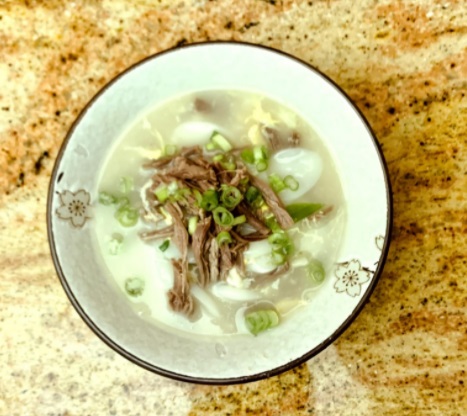The pandemic has brought with it countless changes to our lives, many of these being especially for the worse. The mental health of many students, parents, professionals, and adults have taken a hit, with fewer social interactions and more uncertainties in life. The future of American economy, despite relative growth within the past year, is still uncertain, with COVID-19 stimulus checks concerning the fiscally conservative and the high rates of unemployment concerning many economists as well.bPersonally, I have noticed a heavier dependence on food as a sort of coping mechanism as a result of the pandemic. There are several reasons for this.
First, staying home for most of the time has meant fewer meaningful events. The run-of-the-mill routine of waking up, attending virtual classes, and finishing homework became boring quickly. There are fewer events I look forward to, with what would normally be festive celebrations and elaborate gatherings still being held online. As a result, my mind has turned to food as a means to liven up my life every now and then. I find myself increasingly turning to food from different cuisines, from Korean to Japanese to Italian. Before, good food was often a reward for my academic and extracurricular accomplishments. Now, it has become more of a form of entertainment that allows me to not only forget the repetitive aspects of my life, but to also reminisce about the lively life I had before.
This reminiscing is another reason I have had more of a dependence on food as a coping mechanism. Although I thought that food was merely for the palate (and for the stomach), food is also for the soul, carrying centuries of culture, heritage, and a way of life with it. Take the dish tteokguk, a hearty Korean soup mainly filled with rice cakes, scallions, for example. Most Koreans are aware that this dish is eaten on the first day of the new year as it symbolizes a longtime tradition accompanying other festivities such as yut nori, a Korean board game where players throw yut (usually wooden sticks with engravings) to advance their pieces and possibly capture opponent pieces. I actually deepened my appreciation for the food when my English teacher gave an assignment during the pandemic, challenging students to select a food that has shaped their identity. Numerous ideas whizzed through my head. Korean cuisine is diverse after all, with numerous different dishes originating from the provinces across the Korean peninsula. The reason I chose tteokguk, however, was because of the effort my mom constantly put into making the food. She believes that authentic Korean food cannot be made quickly, and has spent numerous hours at a time preparing the dish. In the midst of the pandemic, I was able to reflect on my newfound emotional connection to food.
Everyone has a different relationship with food. Some have managed to find joy, like I have, cherishing both the actual taste of dishes and the memories associated with them. However, many others have unhealthy relationships with food. In fact, Harvard’s T.H. Chan School of Public Health has noted an increase in teen eating disorders during the pandemic, a saddening fact that should prompt each of us to ask: what is my relationship with food like right now?
Jeffrey Kwon, Grade 11
North Hollywood High School

